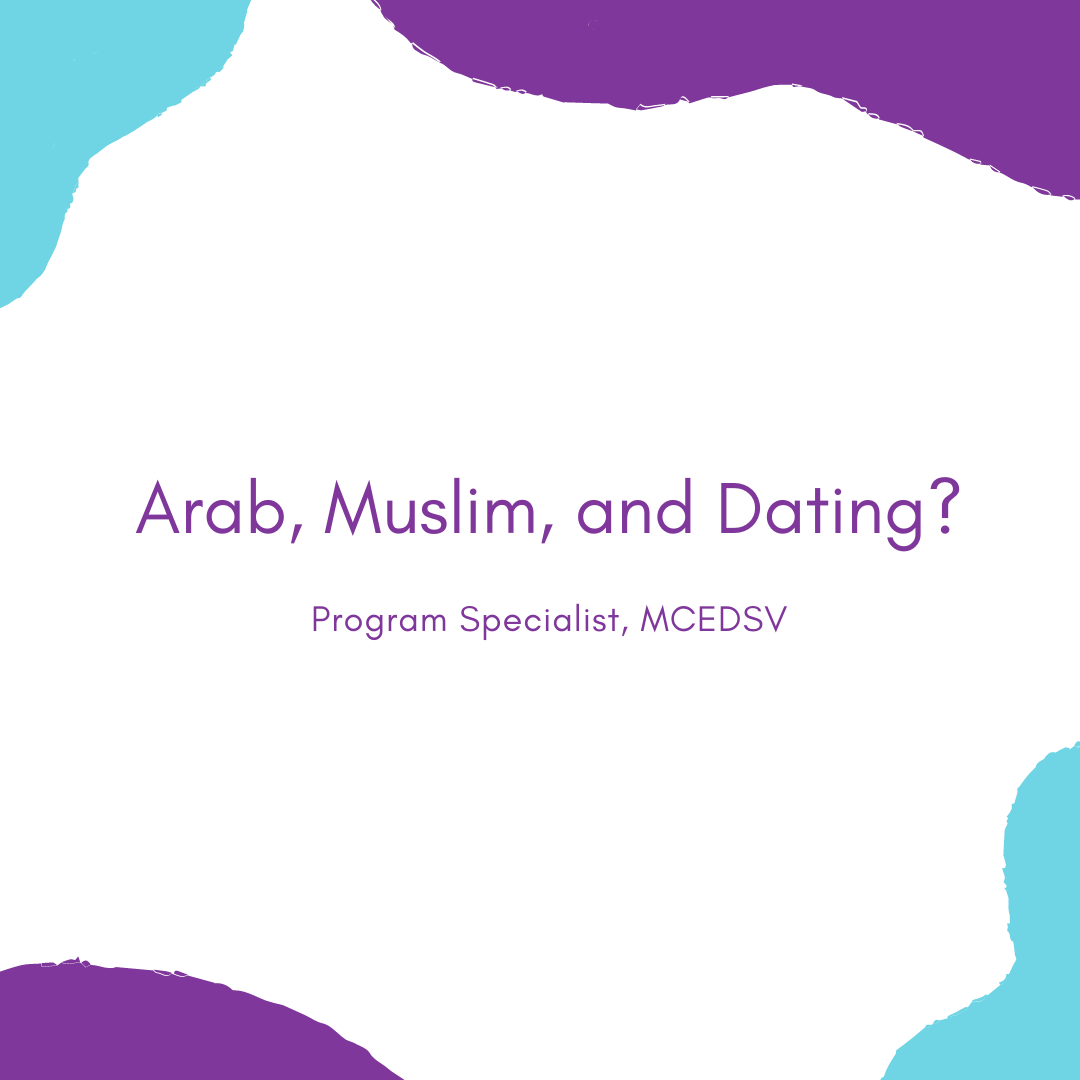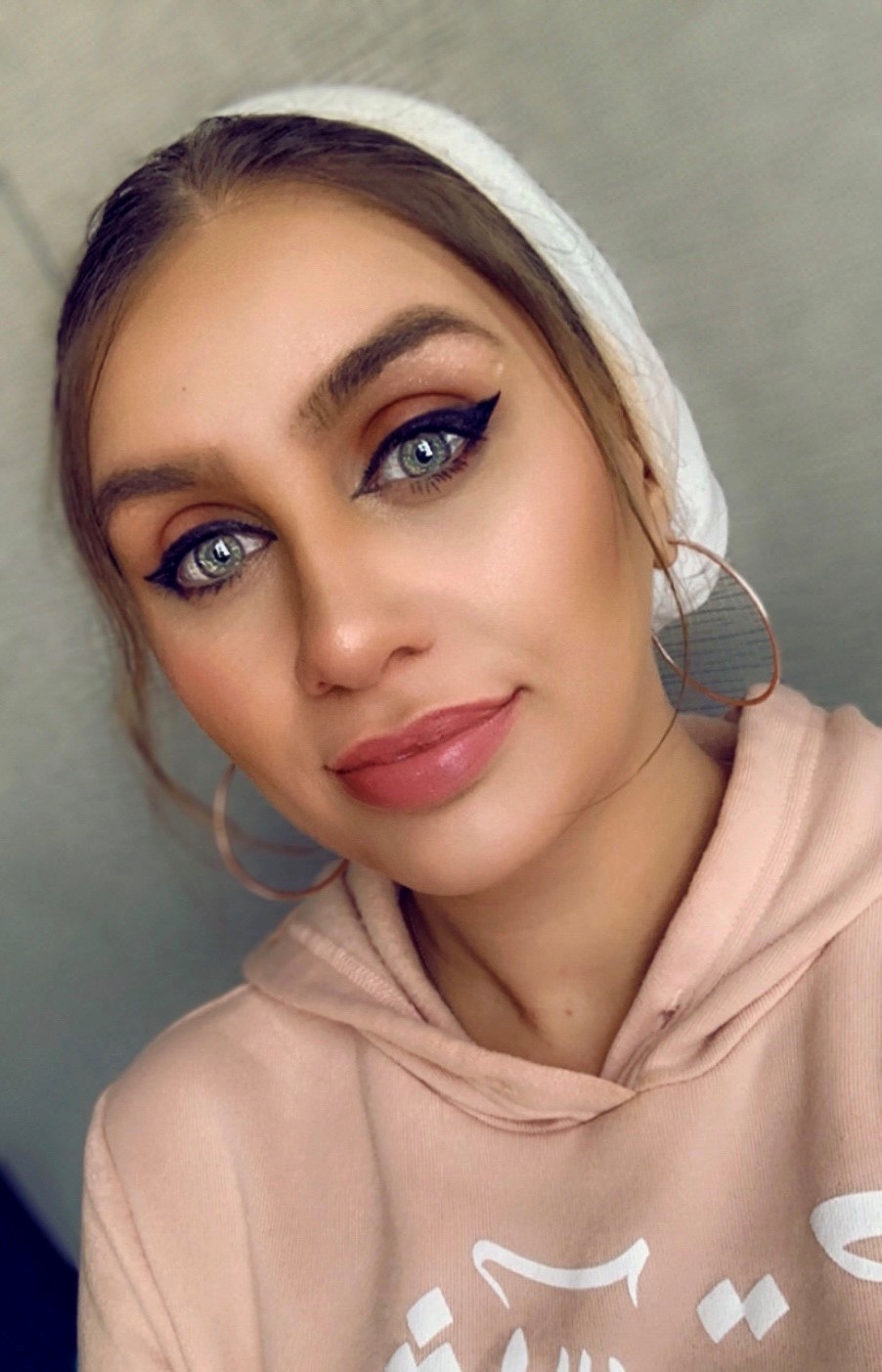Arab, Muslim, and Dating?

*Blog Disclaimer*
MCEDSV values the voices of all survivors. We acknowledge the power and change that can be created with perspective sharing based on one’s personal identities and experiences. It is our hope that after engaging with various narratives and perspectives, individuals are able to challenge their own belief systems and feel empowered to self-reflect on how to be an effective advocate, ally, and social change agent within the anti-oppression movement.
Furthermore, please note the views and opinions expressed in this section (Personal Narratives and/or Voices of Color) of our blog are not a direct reflection of the views and opinions of MCEDSV. To that point, views expressed are not applicable to every individual who shares an identity or set of identities with the original author. While you read, keep in the forefront that this is just one individual’s perspective in a diverse world, within our movement and beyond.
—–
In observance of Teen Dating Violence Awareness Month this past February, MCEDSV’s Program Specialist, Layla Elabed would like to share her view on this issue from a Muslim and Arab-American perspective.
I am a Muslim and Palestinian American with over six years of experience working within the domestic and sexual violence movement, specifically in the Muslim and Arab- American community. Although dating is prohibited in Islam, my youth prevention work centered on “taboo topics” like love, dating, relationships, and sex.
There are central cultural values within Arab culture that reinforce principles of dating and marriage. While many Muslims don’t practice Islam in a monolithic way. Their dating and marriage practices look differently for families based on their own religious and cultural beliefs. However, there is one constant belief that sex outside of marriage is forbidden.
I was only able to marry when my parents deemed it appropriate and even then, it was to “halal-date” my future partner, which consisted of chaperoned outings up until our wedding day. Many of my fellow Arab Americans, who aren’t Muslim, still adhere to the culture of our motherlands where dating and sex outside of marriage don’t happen, at least not openly.
Does this mean that dating and intimate relationships don’t happen within Muslim and Arab-American communities? No, of course not. It happens, whether or not our parents refuse to accept the fact that Muslims date. Arabs date. Some of our young Muslim Arab Americans are dating, too. It is time for us to recognize this so we can have healthy and informative conversations around these topics, that ultimately protect our youth from abusive and toxic relationships, intimate partner violence, and sexual assault.
These deeply rooted cultural and religious beliefs deter parents from talking to their children about healthy intimate partner relationships or anything to do with sex, which increases risk factors for sexually transmitted diseases, sexual assault, and harmful gender norms that contribute to violence against women and girls within our community.
Many young girls and women I’ve worked with have disclosed experiencing pressure and coercion from their intimate partners to have sex or perform sexual acts by using threats that they will be exposed to their families for having a boyfriend or an intimate partner. This is assault. Then, they feel as if they have no one to turn to because of the shame, stigma, and fear placed on them by both the intimate partner and the family.
It’s easier for parents and the community to say that these girls wouldn’t be in those situations if they didn’t date, which is another way to slut-shame, adding to the toxicity in our society known as rape culture.
I think our best chance to protect our youth is to be open and honest with them about relationships. Keep the door open to those types of conversations and do not shroud these topics in fear and shame. We need to educate our youth on these issues in a way that is empowering, non-judgmental, and purposeful.
A great resource for more information on how to talk with your teen about healthy relationships is HEART Women & Girls, they provide faith-based information and education on these very issues.

Layla Elabed is a Program Specialist at the Michigan Coalition to End Domestic and Sexual Violence. If you or someone you know is a survivor of sexual violence, our trained advocates are available to talk 24 hours a day toll-free at 1-855-VOICES-4 (1-855-864-2374).
Other Ways to Reach Our Hotline:
